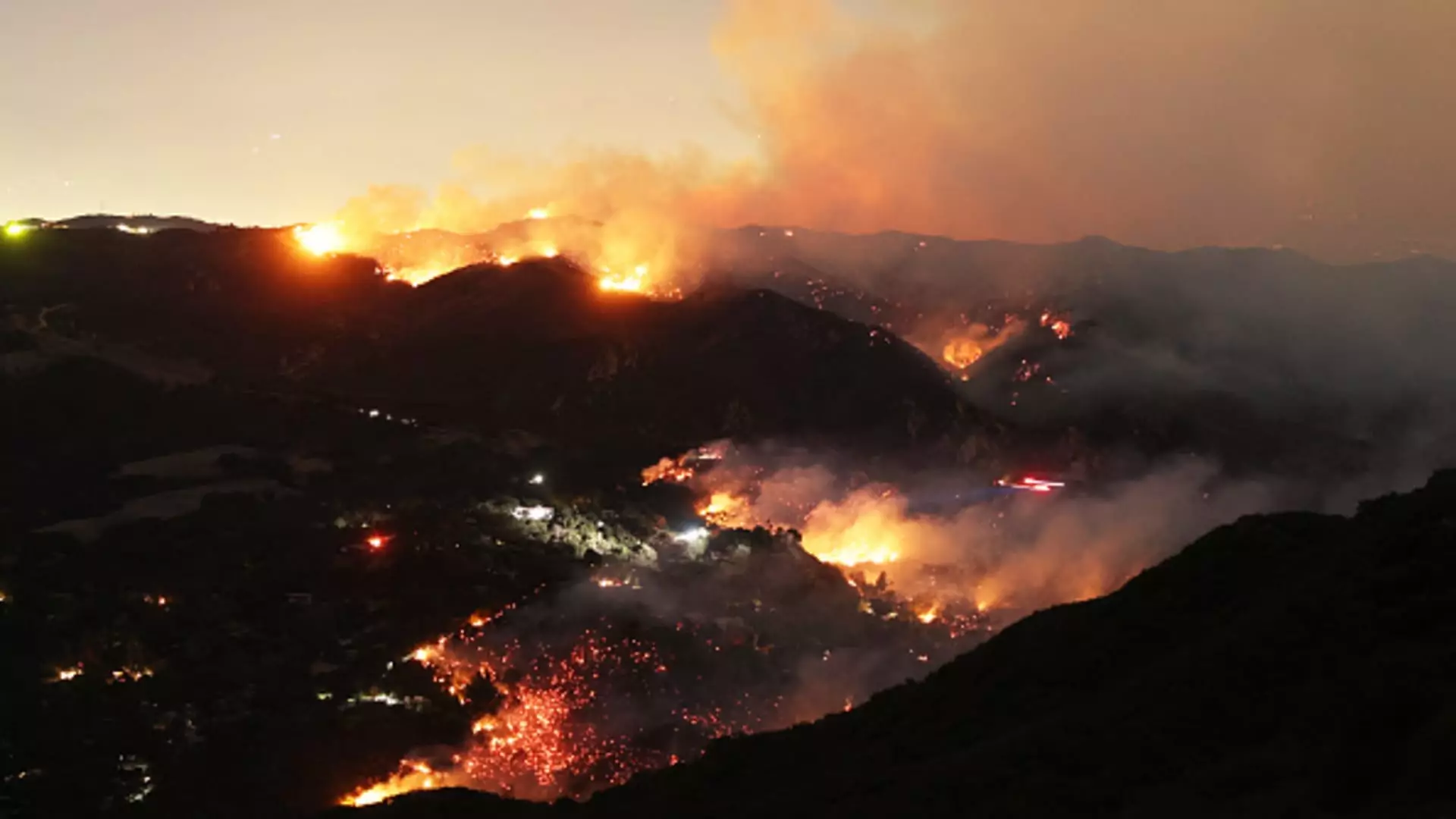For over a week now, Southern California has been under siege by unprecedented wildfires that have devastated vast areas of the Greater Los Angeles region. Reports indicate that these merciless fires have scorched around 40,000 acres, obliterating more than 12,300 structures, and leading to the evacuation of tens of thousands of residents. The extent of the destruction is staggering; estimates suggest that insured losses could exceed $20 billion, with some analysts predicting total economic damages might approach or surpass $60 billion. These sobering numbers reveal the harsh reality that many California families are grappling with in the aftermath of these devastating events.
As authorities work tirelessly to contain the flames, approximately 88,000 residents are currently under mandatory evacuation orders, while another 89,000 are on alert for potential evacuation. In such high-stress scenarios, understanding the next steps is crucial. Insurance professionals emphasize that initiating the claims process should be one of the first things affected residents do. Karl Susman, an insurance broker from Los Angeles, advises families not to wait until the fires have completely subsided. Even if evacuees cannot return home, they can start filing insurance claims immediately.
This period can be overwhelming, and victims may find themselves unsure of where to start. Insurance experts recommend seven essential steps to help reclaim some stability during this tumultuous time:
1. **File Your Claim Promptly**: Don’t wait. The earlier you file your claim, the sooner you can receive assistance. While it might feel daunting, you don’t need to have every detail down before initiating the process.
2. **Seek Temporary Housing**: If your home is damaged or uninhabitable, explore options under “loss of use” coverage, which is typically included in most homeowners’ insurance policies. This provision offers valuable support during these difficult times by covering temporary living expenses.
3. **Document Everything**: Keep meticulous records of all interactions with your insurance provider, including receipts for emergency purchases like food, clothing, and lodging. It’s essential to maintain a detailed account of all expenses incurred as a result of the wildfire.
4. **Shut Off Utility Services**: If your property has been severely damaged, contact utility companies immediately to halt service. This can prevent unnecessary charges while you navigate repairs or rebuilding.
5. **Assess Your Auto Insurance**: For residents who lost vehicles, it’s important to check auto insurance policies for comprehensive coverage, which generally includes wildfires as a covered peril.
6. **Consider Property Tax Relief**: If your home has sustained significant damage or a total loss, you may qualify for a reduction or suspension of property taxes. Engaging with your county assessor can provide crucial financial relief during the restoration process.
7. **Locate Assistance Programs**: For those without insurance, aid is still available. Organizations such as FEMA have established programs to support those affected, offering financial assistance for temporary living arrangements and other basic needs.
The federal response has begun to take shape as President Joe Biden announced a one-time assistance payment for wildfire victims through FEMA. As thousands of residents have registered for aid, it’s clear that community support and government programs play a vital role in the recovery process. Affected individuals can apply for assistance online or through dedicated FEMA hotlines.
Furthermore, California has recognized the importance of localized support and will host workshops aimed at providing victims with resources and information, helping them navigate insurance processes and connect with financial support avenues.
Beyond governmental support, local charities and nonprofits are stepping up to lend a hand, organizing donation drives and recovery initiatives in affected communities. Victims are encouraged to seek out these organizations for additional resources, emotional support, and community engagement, which can be invaluable during this period of recovery.
The plight of wildfire victims is heart-wrenching, but the resilience of these communities shines through. By taking proactive steps, individuals can better manage their circumstances and expedite the recovery process. In times of crisis, vigilance, preparation, and community support will emerge as key factors in rebuilding lives and homes destructed by the relentless flames of nature. As Southern California navigates these challenges, the spirit of solidarity will be essential in overcoming adversity and forging a path toward recovery.

